-Abraham Lincoln
Man never made any material as resilient as the human spirit.
-Bernard Williams
"Fall seven times, stand up eight."
-Japanese Proverb
"May every sunrise hold more promise, every moonrise hold more peace."
-Anon.
"Aerodynamically, the bumble bee shouldn't be able to fly, but the bumble bee doesn't know it so it goes on flying anyway."
-Mary Kay Ash
"When the waves are round me breaking,
As I pace the deck alone,
And my eye in vain is seeking
Some green leaf to rest upon;
What would not I give to wander
Where my old companions dwell?
Absence makes the heart grow fonder,
Isle of Beauty, fare thee well!"
-John Milton, Paradise Lost
Four be the things I am wiser to know: Idleness, sorrow, a friend, and a foe.
Four be the things I'd been better without: Love, curiosity, freckles, and doubt. Three be the things I shall never attain: Envy, content, and sufficient champagne. Three be the things I shall have till I die: Laughter and hope and a sock in the eye.
-Dorothy Parker, Inventory
May memory restore again and again The smallest color of the smallest day: Time is the school in which we learn,Time is the fire in which we burn.
-Delmore Schwartz, Summer Knowledge: New and Selected Poems (1959)
WE RAISED $50.00 FOR NAZIA!!!!! I am so thrilled. Considering an Afghan physician makes only $80.00 a month, that is a lot of money. I plan on visiting her tomorrow and telling her about the fundraiser. I wonder what she will think of it.
I posted a new slideshow. Some people really know how to take some great pictures. All of the pictures where taken in Kabul by various people. I can not take credit for any of them.
Speaking of pictures, I took a lot of great pictures and videos today but none of them would be suitable for the blog- too much blood and guts. Here is one from the ride home. A bunch of city workers in the back of a truck.

A patient with a very large hand tumor came into the ER. The surgeon went ahead and removed it. I can not exactly say that he used sterile procedure, although his technique was pretty good. They are still reusing old scalpels. The tumor was the size of a golf ball and it was located between his second and third digit.
I went back up to OB and tried and do some more teaching. It was just so challenging. Imagine trying to teach a room full of adults that do not speak your language and who all have ADHD. I passed around a bunch of OB wheels and I gave them menstrual dates and I had them calculate delivery dates. It was a really easy concept that just took them forever to accomplish. It was funny because the interpreter caught on really quick and ended up trying to do a lot of the teaching. At one point he said to me, "Do you mind if I call my wife." I asked him how come. He said that now that he knew how to calculate due dates he wanted to ask his wife when her last menstrual period was because he thinks that she might be pregnant.
The clinicians pretty much only have 1 diagnosis that they give to patients and that is PID (pelvic inflammatory disease). Every patient that comes in has PID. I find it very hard to believe in a culture that pretty much does not have any premarital relations that every women has a disease that is mainly transmitted by intercourse. The problem is that the female doctors are not able to do any kind of exam or labs. So their assessment basically comes from an educated guess. So everyone gets the standard cocktail of 3 different antibiotics- ceftriaxone, doxycycline, and flagyl. Don't get me wrong, that combination of meds will take care of a lot of infections, but it is a really sloppy way of practicing medicine. I might be able to get them to do a basic exam and take some short notes. I do not think that I can get them to do any sort of real exam during my deployment.
We were invited to eat lunch at the clinic. They gave us a really special treat. We ate the most delicious kabobs with naan. It was really good. We had a rare opportunity to watch how they served lunch. They basically serve the same meal everyday. Naan, rice, with a stew that has lamb meat and garbanzo beans in it. It is actually very good. Patients, doctors, and clinic workers all gather around a table and a person scoops the food onto a metal plate and tosses on a loaf of naan.
You sort of get this feeling that everyone knows each other, almost like it is a small community. It is really an experience that is hard to describe. A lot of people are very poor and they are eating the same stuff every single day, even so, it seems as if people are as happy as can be. It reminds me of how I hear how so many military people are so much happy being on smaller FOBs (forward operating bases). When you are on a smaller FOB you have a lot less amenities and life in many ways is a lot more uncomfortable, but if you ask people they are actually a lot happier then people living on larger FOBs. It is very ironic. I think it has to do with closer personal relations that you develop and more of a sense of a community that develop on smaller FOBs.
Someone sent me a link to an Air Force article that was published on Nazia. I thought that you might want to read it. It is really well written. It is another example of some of the good that the military is doing over here. It is unfortunate that it is not getting reported.

Abused Afghan woman to receive plastic surgery
By Capt. Bob Everdeen
Provincial Reconstruction Team QalatQALAT, Afghanistan (AFPN)
A 16-year-old woman brutally attacked by her husband in December is set to receive plastic surgery in Kabul following close coordination between the Afghan government and Provincial Reconstruction Team Qalat, a joint U.S. Air Force and Army unit here. Nazia Hookum Darr was beaten and disfigured by her 40-year-old husband of three months on Christmas Day. The man, who is still on the run from police, broke 16 of his wife's teeth, shaved her head, cut off her nose and ears and poured scalding water on her hands and feet.
The abuse started shortly after their wedding and escalated until the attack on Dec. 25. Army Lt. Col. James Bramble, the PRT commander, found out about the attack the day after it happened."The story was so compelling that we immediately contacted the provincial governor and arranged a trip to the local hospital to visit the doctors taking care of the girl," he said. The following day representatives from the PRT met with Gulab Shah, the Zabul Province chief of staff and the local director of the interior, and then traveled to Zabul Provincial Hospital to meet with Ms. Darr in the women's ward. Due to Afghan sensitivities, only a female translator and chief physician were allowed to meet with the abused woman."Nazia's wounds were healing well and she was well taken care of by the Afghan physicians," said Lt. Col. Michael Gauron, the PRT chief medical officer. "The hospital staff, especially the female nurses, really rallied around Nazia. We made frequent visits, bringing soft foods and paying for some of her meals. Some of the time she was in excellent spirits and other times you could see the fear in her eyes."
The hospital staff cited Ms. Darr's fears of retribution from her husband or his family members as part of Pashtunwali, a pre-Islamic-era honor code that is still practiced by the majority of Afghans in this rural province of the country. My husband "was an older man with gray hair and he was mean to me from the time we met," Ms. Darr said. "I had no choice; my mother died when I was young and my stepmother arranged the marriage. I'm afraid of him. He's a former Talib. In Qalat my husband was jobless and was always complaining about economic problems. Two weeks after we moved into our new home he beat me for no obvious reason."
According to Afghan National Police, the man's first wife died about a year earlier under suspicious circumstances. His anger at his current wife comes from suspicions of infidelity, accusations his wife adamantly denies."There was an outpouring of sympathy," Colonel Gauron said. "We had American military surgeons, two international nongovernmental organizations and the Afghan National Military Hospital (staff) all volunteering to help. After discussing the options, we elected to facilitate Nazia's transport to Kabul and have Afghans take care of her."
Colonel Gauron worked medical issues through Dr. Gary Davis, an American surgeon working with the NMH in Kabul. Dr. Davis obtained consent from plastic surgeon Gen. (Dr.) Mohammad to accept the patient transfer. Meanwhile, Colonel Bramble worked the political side, obtaining permission of Zabul Province Governor Delbar Jan Arman to allow military transport of Nazia to the hospital in Kabul. Governor Arman coordinated with the minister of women's affairs in Kabul to take care of Nazia while she is in the capital city.
In mid-January, Ms. Darr was flown by military airlift to Kabul."Once we were in Kabul, I immediately called Dr. Davis and the minister of women's affairs," Colonel Gauron said. "The doctor immediately arranged a bed for Nazia, and the director of women's affairs sent a male and female escort to bring Nazia to the hospital."
"When we made the transfer with the representatives at the gate, Nazia cried," said PRT Interpreter Spozhmae Karzai. "We will miss her, but we're so happy she is getting to the plastic surgeons. She deserves it."The tragic event provided living proof that governance is making progress and is being accepted by the people of Afghanistan. Thanks to the diligent work from numerous Afghan agencies the young girl will get the surgery she requires to regain her dignity and have an opportunity of living a normal life."
Thanks for reading.
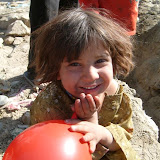
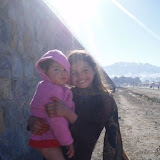
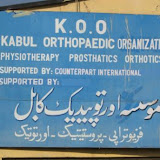
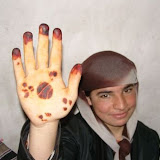
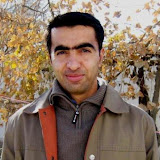
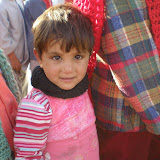

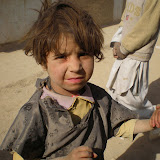

1 comment:
Thank you for posting it, even if our media doesn't cover it, it is being covered by word of mouth.
Our military is doing great things!!
Sandra Bramble
Post a Comment